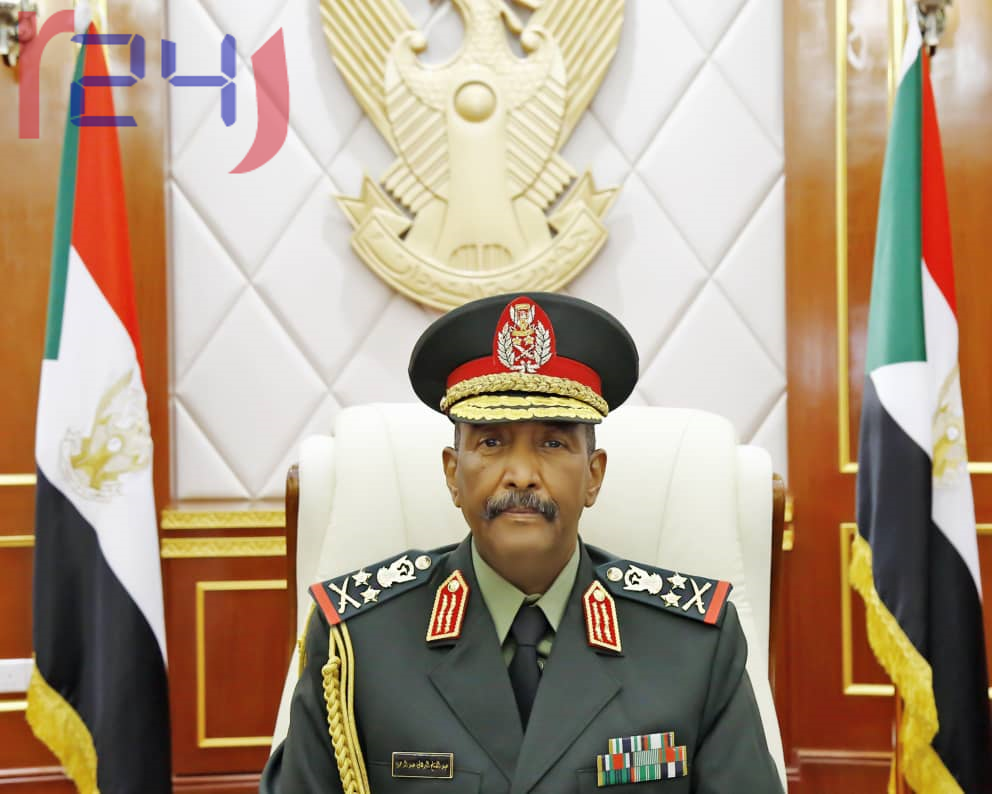Military commanders from Sudan and Ethiopia hold talks in Khartoum amid security tensions on the border
April 12, 2020 (Khartoum ) Chief of staff of the Ethiopian army has embarked on intensive discussions in the Sudanese capital Khartoum, with the leadership of the transitional government and the leaders of the Sudanese army, following security tensions and military buildup on the border between the two countries.
The chief of staff of the Ethiopian army initiated his talks by a meeting with his Sudanese counterpart, then a second meeting with Prime Minister Abdullah Hamduk, and he is expected to meet the Chairman of Sovereign Council , Lieutenant General Abdul-Fattah Al-Burhan, later this evening.
Eastern Sudan, especially the border strip with Ethiopia in the areas of Doka and Qallabat and Fasqa, are witnessing these days security tensions in the wake of the Sudanese army’s deployment of a brigade-based military contingent in the region.
The move comes after increase in attacks by Ethiopian armed gangs called Shifata
Last March, the Sudanese army lost two of its soldiers in armed clashes with the Ethiopian gangs in the area, after the gangs had attacked the village of (East Al-Atbrawi) inside the Sudanese borders and stole a number of cows, according to a statement by the Sudanese army.
On Wednesday, the head of the Transitional Sovereign Council, Lieutenant General Abdel-Fattah Al-Burhan, accompanied by a number of army commanders and the director of the General Intelligence Service, made a surprise visit to the border area of Doka, inspecting the forces deployed there. Alburhan appeared among the his forces wearing military uniform, which raised fears of escalating
step in the region
But , journalist Saleh Ammar specializing in eastern Sudan, downplayed
the possibility of a military escalation with Ethiopia in the sense that there is no major threat on the ground that indicates for escalation.
” the visit of Al-Burhan wearing military uniform was surprising to me” added Saleh Ammar.
Ammar told Darfur 24 that the border conflict with Ethiopia is not a new thing, as it is a historical conflict that dates back hundreds of years and deserves from the Sudanese government to pay more attention, noting that previous governments did not deal with it with the required importance, despite repeated occurance of incidents on the border between the two countries.
Saleh referred to the occupation by Ethiopia of hundreds of thousands of fertile acres of land in Sudanese side of the border, in addition to killing dozens of innocent Sudanese farmers and herders by Ethipian gangs.
Ammar stressed that the surprise issue is that the current escalation came without a sequence of events on the ground, adding that “the border file must be dealt with with a clear strategic vision that focuses on returning all the occupied agricultural lands and at the same time maintaining a good relationship with Ethiopia.
The head of the sovereign council in Sudan, Lieutenant General Abdel-Fattah Al-Burhan, said that the armed forces will not retreat from protecting the country’s borders nor will they allow encroachment on Sudanese territory.
Al-Burhan said in a statement, published by the military media after his visit to the area of Doka, “Do not retreat from protecting the borders of Sudan, and we will not allow encroachment on our lands.” The statement indicated that the Alburhan had received enlightenment at the headquarters of the 2nd Infantry Division and the 6th Infantry Division headquarters, regarding the security situation in the country.
In a related development ,on March 28, the Sudanese army had begun deploying a brigade and managed to cross the Atbara River, proceeding in the area of Fashqa Alsagira, spreading to the Khor Alhura area on the international borders with Ethiopia.
However, the Sudanese army spokesman, Brigadier General Amer Muhammad Al-Hassan, said that the recent deployment of forces in the region was meant to maintain security, and part of the precautionary measures taken by the government of Sudan to combat Coronavitus pandemic. Al-Hassan added, in a press statement on that day, that “the deployment of forces will also be used to secure the area from the conflicts that occur between farmers when preparing for the agricultural season”.
Expert on border disputes, Dr. Abbas Al-Tijani, told Darfur 24 ” the current escalation will force Sudan and Ethiopia to seriously go to demarcating the border between the two countries, and that is the only option to avoid any military confrontations”.
“The issue of the lands dispute in Fashaqa area ,on the Sudanese-Ethiopian border is not new, but now it has devoloped to the stage to the stage of occupation by Ethiopian gangs about a million acres of fertile Sudanese lands” added Abbas AlTijani.
Ethiopia sometimes uses emotional methods that Sudan is a sister country and border issues do not affect relations, but in reality, Ethiopian farmers benefit from this situation.
Al-Tajani rules out occurrence of any military confrontations between Sudan and Ethiopia in terms of its repercussions, which will be very costly to the whole region.
According to unofficial statistics, the lands usurped by the Ethiopians amounted to about one million and eight hundred thousand feddans, distributed in the areas of “Grand Fashqa, Little Fashqa, south of Gedaref” Upper Egypt “, and the Dendar Reserve”.
Also, the areas of Taye ,Um Dablo have been occupied and turned into Ethiopian cities, after expelling the citizens and farmers, following attacks by Ethiopian gangs.

